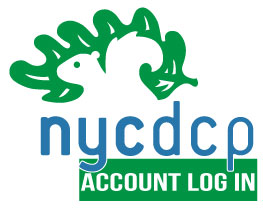
 Office of Labor Relations311
Office of Labor Relations311 Search all NYC.gov websites
Search all NYC.gov websites
The Deferred Compensation Plan
Beneficiary Information
Participants have the opportunity to choose both primary and contingent beneficiaries for any accounts that they hold with the Plan.
Upon the death of the participant, the account balance or remaining payments will be paid in the following order:
1. To the surviving primary beneficiary(ies);
2. If there are no surviving primary beneficiaries, to the surviving contingent beneficiaries;
3. If there are no surviving primary or contingent beneficiaries, to the surviving spouse;
4. If there is no surviving spouse, to the estate.
If any of the primary beneficiaries predecease the participant, their share will be distributed proportionally among the remaining primary beneficiaries.
Contingent beneficiaries will be entitled to an amount payable under the Plan only if all of the primary beneficiaries predecease the participant. If any of the contingent beneficiaries predecease the participant, their share will be distributed proportionally among the remaining contingent beneficiaries.
Upon the death of the participant, the determination of beneficiaries is final.
Beneficiary Distribution Information
The IRS has defined a “designated beneficiary” as an individual in the form of a spouse or non-spouse. A “non-designated beneficiary” is an institution such as a charity.
Beneficiaries are required to submit a Beneficiary Distribution Form by December 31st of the year after the year in which the participant has died in order to establish an Inherited Distribution Account.
Failure to establish an Inherited Distribution Account by December 31st of the year after the year in which the participant has died will result in the beneficiary having to complete distribution by December 31st of the calendar year which contains the 5th anniversary of the date of the participant’s death.
As a beneficiary of a Deferred Compensation Plan participant, you are entitled to establish an Inherited Distribution Account and choose from an array of distribution options and services.
Distribution Options Chart
Beneficiary Distribution Form
Beneficiary Distribution Guide
Disclaiming Assets
If you find that you will not need all or some of your inherited assets during your lifetime, you may want to disclaim, or refuse to inherit, all or part of your inheritance. A disclaimer is an irrevocable decision to give up your right to inherit the assets. These assets would pass to the next eligible beneficiary(ies).
You must disclaim assets within nine months of the participant’s death and before you have actually taken possession of those assets. Your disclaimed inheritance would then be passed on directly to the next eligible beneficiary(ies) that were designated by the participant. Any required distributions would be based on the other beneficiary’s age, rather than your own.
Spousal Beneficiaries
As a spousal beneficiary, you can choose to:
- Leave your money in the Plan by establishing an Inherited Distribution Account by submitting a Beneficiary Distribution Form and begin taking required distributions by December 31st of the year following the participant’s death;
- Roll over your inherited 457 or 401(k) Plan assets into your own new or existing eligible retirement plan or IRA. If you already have a NYCE IRA, you may be eligible to roll over your inherited assets into your own NYCE IRA (contact the Plan’s Administrative Office for more information);
- Disclaim all or part of your assets within nine months of your spouse’s death.
Note: You are permitted to designate a subsequent beneficiary.
Non-Spousal Beneficiaries
As a non-spousal beneficiary, you can choose to:
- Leave your money in the Plan by establishing an Inherited Distribution Account by submitting a Beneficiary Distribution Form;
- Roll over your inherited 457 or 401(k) Plan assets to an inherited IRA and begin taking required distributions by December 31st of the year following the participant’s death;
- Disclaim all or part of your assets within nine months of the participant’s death.
Note: You are not permitted to designate a subsequent beneficiary.
Minor Beneficiaries
The submission of a Beneficiary Distribution Form by a beneficiary who is under the age of majority requires the authorization and signature of a parent or legal guardian. Evidence of guardianship of person and/or property must be provided. The check will be made payable to the “parent or guardian for the benefit of the minor.” Checks cannot be made payable directly to the minor.
Multiple Beneficiaries
Beneficiaries are required to establish Inherited Distribution Accounts by December 31st of the year after the year in which the participant has died. If the participant selected more than one beneficiary, and separate Inherited Distribution Accounts are not established for each beneficiary prior to December 31st of the year immediately following the year in which the participant died, then the length of time over which these beneficiaries who did not establish their account, even the spouse, can receive payments is determined by the beneficiary entitled to the shortest amount of time. If neither beneficiary establishes a separate account, then all beneficiaries must receive the entire account balance by the December 31st which contains the 5th anniversary of the date of the participant’s death.




